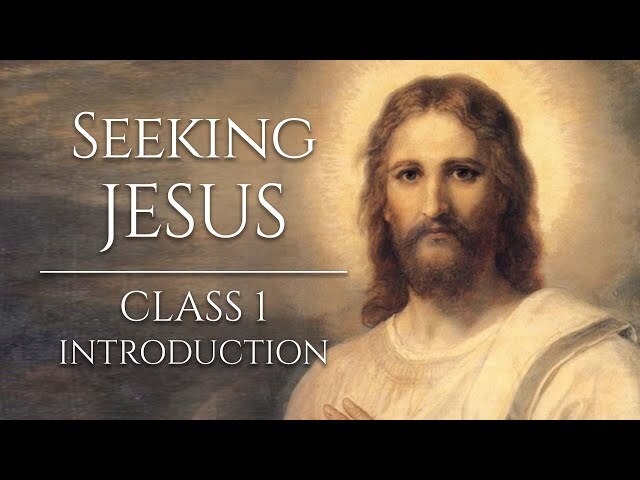Did you there is a global organization for distracted people? You can learn more at distractedpeople.com. There are all kinds of stories posted there. One man—and I’m not making this up—was distracted when he parked his car and couldn’t remember where he parked it. He didn’t find it … for twenty years. He actually reported it as being stolen, and 20 years later, he got a call from the police who said, “We think we’ve found your car.” When the man went to his car, he suddenly remembered, “Oh yeah, that’s where I parked it!”
Another person reported taking his dog out for a walk. After walking for two blocks, he realized he had forgotten the dog.
Yes, it’s easy to get distracted.
One of my favorite scriptural stories about distraction happens at a little dinner party. Two sisters, Mary and Martha, had invited Jesus over. Martha was busy in the kitchen getting everything ready, while Mary just sat at the Lord’s feet and listened to what he was saying (see Luke 10:38–42).
So here’s Martha, working to prep six or seven dishes, making sure that all the kids’ stuff is out of the living room, double-checking to make sure that the toilet seat is down, and she notices that Mary’s doing nothing. She’s doing nothing. She’s just sitting at the Savior’s feet.
So Martha comes to Jesus and says, “Lord, don’t you care that my sister has left me to do all the work by myself? Tell her to come help me.”
They say that about 10 percent of what you communicate is through the words you say, 40 percent through your tone of voice, and 50 percent through body language. If that’s even close to being true, then Martha’s tone of voice and body language are pretty important in understanding this conversation.
Did she sound sweet? “Um, Jesus, I’m really busy trying to serve you some good food, do you think you could ask Mary to come and help me?”
Did she sound upset? “Come on, Lord, why is my sister doing this again? Lord, look at all the work I’m doing, and Mary’s just sitting around again. Would you tell her to come help me?”
What kind of response do you think Martha was looking for? “And it came to pass, Jesus said, ‘C’mon, Mary, get in the kitchen and help your sister out.’” Or maybe something more scriptural: “Behold, if anyone asks you to cook for an hour, cook with them twain.”
If that was the hope, Martha was disappointed. Instead, Jesus said to her, “Martha, Martha, you are worried and distracted by many things” (Luke 10:41, New Revised Standard Version).
Again, consider the tone. I picture the Savior saying this in the kindest possible way.
There’s a lot of meaning for us in that sentence. I see myself in Martha. Worried and distracted. I can’t tell you how many times I’ve heard, in one way or another, the Lord saying to me, “John, John, you are worried and distracted by many things.”
Then the clincher. Jesus says, “There is need of only one thing.”
Wait, what? Only one thing? What about multitasking? What about all the things on my to-do list? What about the grind? Only one thing?
What is the one thing? Jesus said Mary was doing it. The one thing was sitting at the feet of Jesus, listening to him.
I’m not 100 percent sure how Mary and Martha were feeling at that moment, but based on the fact that Jesus told Martha that she was worried and distracted by many things, I’m guessing Mary was in a happier mental state than Martha was. The difference between them was that Martha was distracted by many things, and Mary was focused on one thing.
It’s been said that “the main thing is to keep the main thing, the main thing.” Maybe we could tweak that: the main thing, is to keep the main thing, the one thing. The one thing is sitting at the feet of Jesus.
What’s Martha’s path to more peace? Do less stuff and spend more time sitting at Jesus’s feet.
Do less stuff—that sounds nice in theory, but what if you’re busy? I want to talk to the crazy busy people for a moment. Imagine, what if you had the combined responsibilities of President Joe Biden and President Russell M. Nelson? That would be insanely busy, right—to be the president and the prophet?
But of course, we know that historically, something similar happened. It happened to Alma the Younger. He was the chief judge (the highest government position among the Nephites) and the high priest (the highest position in the Church). Can you imagine what his Google Calendar looked like?

Alma’s life was out of control. He was nonstop busy doing good things. And what I love about Alma is that he realized he didn’t have time to do it all. He recognized he had to eliminate something so that he could focus on the one thing.
This reminds me of an object lesson I’ve seen. You’ve probably seen it too. A teacher brings in a jar, some big rocks, some pebbles, and some sand. The teacher tells you, “Fill the jar.” If you put in the sand or pebbles first, there’s not enough room for the big rocks. But if you put in the big rocks first, there’s room for everything else to fill in the cracks. This object lesson teaches an important lesson: we need to put first things first.

But this lesson is incomplete. It’s incomplete because it’s a staged scenario. The teacher used just the right number of big rocks so that everything will fit. But what do we do if we have too many big rocks? That’s the situation Alma found himself in.
Alma chose to let go of his role as the chief judge so that he could concentrate on being the high priest. Being chief judge was not bad, but it was preventing Alma from doing more important things, like personally visiting the people and confirming their faith in Christ.
Do you see what happened? Alma didn’t just rearrange how he put stuff in the jar, he simply chose to put fewer things in the jar—because there was no way it was all going to fit.
Shortly after quitting his role as the chief judge, he visited the people in the land of Gideon. Here’s what he said to them: “Behold …, [this] is the first time that I have spoken unto you by the words of my mouth, I having been wholly confined to the judgment-seat, having had much business that I could not come unto you. And I could not have come now at this time were it not that the judgment-seat hath been given to another.”
In other words, Alma says, “I was too busy.” Can you relate? Maybe some of us aren’t too busy, maybe some of us have some mindless distractions we could easily let go of. But my guess is most of us have the same problem Alma had. We’re just too busy. Alma had to give up something—a good thing—so he could focus on the one thing. For Alma, what was the one thing? Listen carefully to what he says next:
“There be many things to come; and behold, there is one thing which is of more importance than they all—for behold, the time is not far distant that the Redeemer liveth and cometh among his people” (Alma 7:7, emphasis added).
For Alma, there was one thing that was most important—Jesus Christ. Just like with Jesus’s words about Mary, the Savior is the one thing.
One thing is needful.
One big rock.
The Rock.
Our Redeemer.
Today, let’s focus on just one thing.


